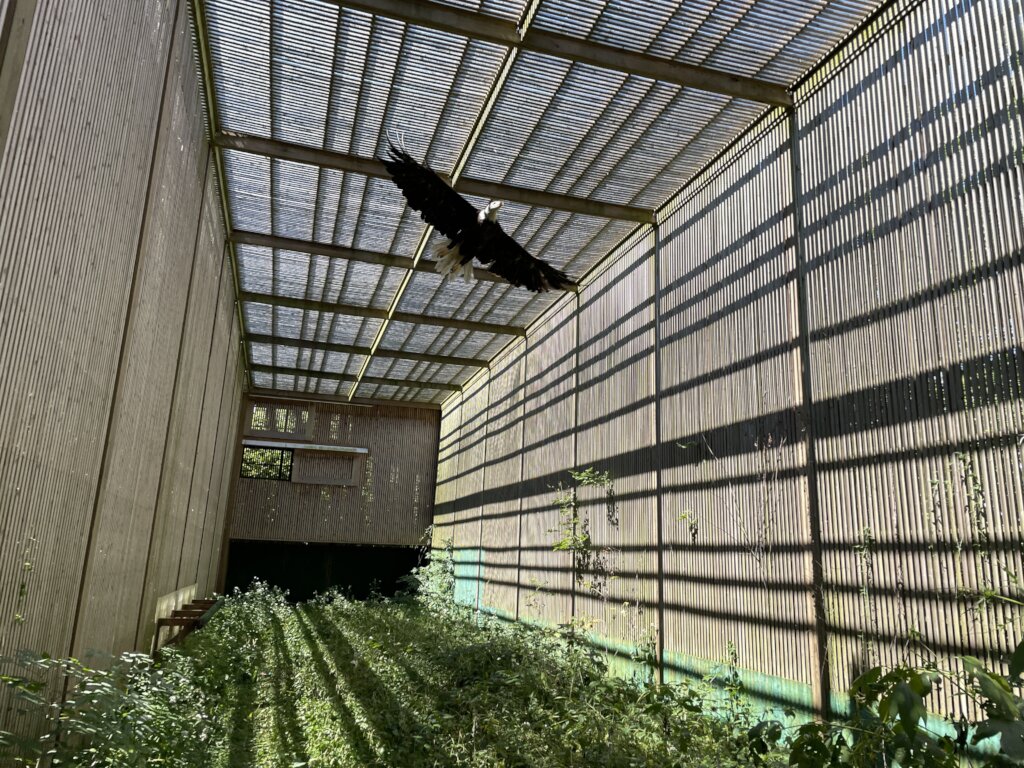By Yvonne Wallace Blane | Co-founder, Fellow Mortals
Days before Independence Day, a mature male bald eagle was sighted in the ditch alongside a road, and then stumbled into the road where he was protected from harm by a family in a pick up truck, a man on a motorcyle, a delivery driver, and the sheriff's department until a conservation warden could get to the scene.
Emaciated and dehydrated, we knew the bird was a male from his smaller stature than that of a female. Female eagles admitted to us have been as much as 14 pounds, and this male was 8 pounds and underweight. Females of all raptor species are larger than the males by an average of 25 percent.
The phalanges (fingers) of one wing were bruised and swollen, and the flight primaries (the long flight feathers at the leading edge of the wing) were broken, but these injuries were recent, and would have been the last blow to a bird that was already suffering when he landed in the roadway.
X-rays showed no fractures and blood testing showed lead to be low, but there are many perils in the life of a wild bird: viruses, bites and resulting infection, or trauma -- all of which can affect a bird's ability to find food and lead to inevitable decline.
While the soft tissue damage to the wing healed within the first weeks, the broken flight feathers needed to molt (replace themselves by falling out and growing new feathers back in their place), and this took many weeks. During his time with us, the eagle molted both primary and tail feathers, which will be sent to the National Eagle Repository for distribution to American Indian tribal members as required by the federal Migratory Bird Treaty Act.
Three and half months after he was found helpless and injured, and over 100 pounds of fresh salmon and beef and venison later, the eagle had moved from critical care through a progression of four different habitats and flights of increasing size ending in the 100+ foot long eagle flight where he was able to exercise and build the muscle needed for the strong flight that would take him home.
In the time he was with us, another 600 birds and mammals came into care. Each one has a story.
Project reports on GlobalGiving are posted directly to globalgiving.org by Project Leaders as they are completed, generally every 3-4 months. To protect the integrity of these documents, GlobalGiving does not alter them; therefore you may find some language or formatting issues.
If you donate to this project or have donated to this project, you can receive an email when this project posts a report. You can also subscribe for reports without donating.
Support this important cause by creating a personalized fundraising page.
Start a Fundraiser